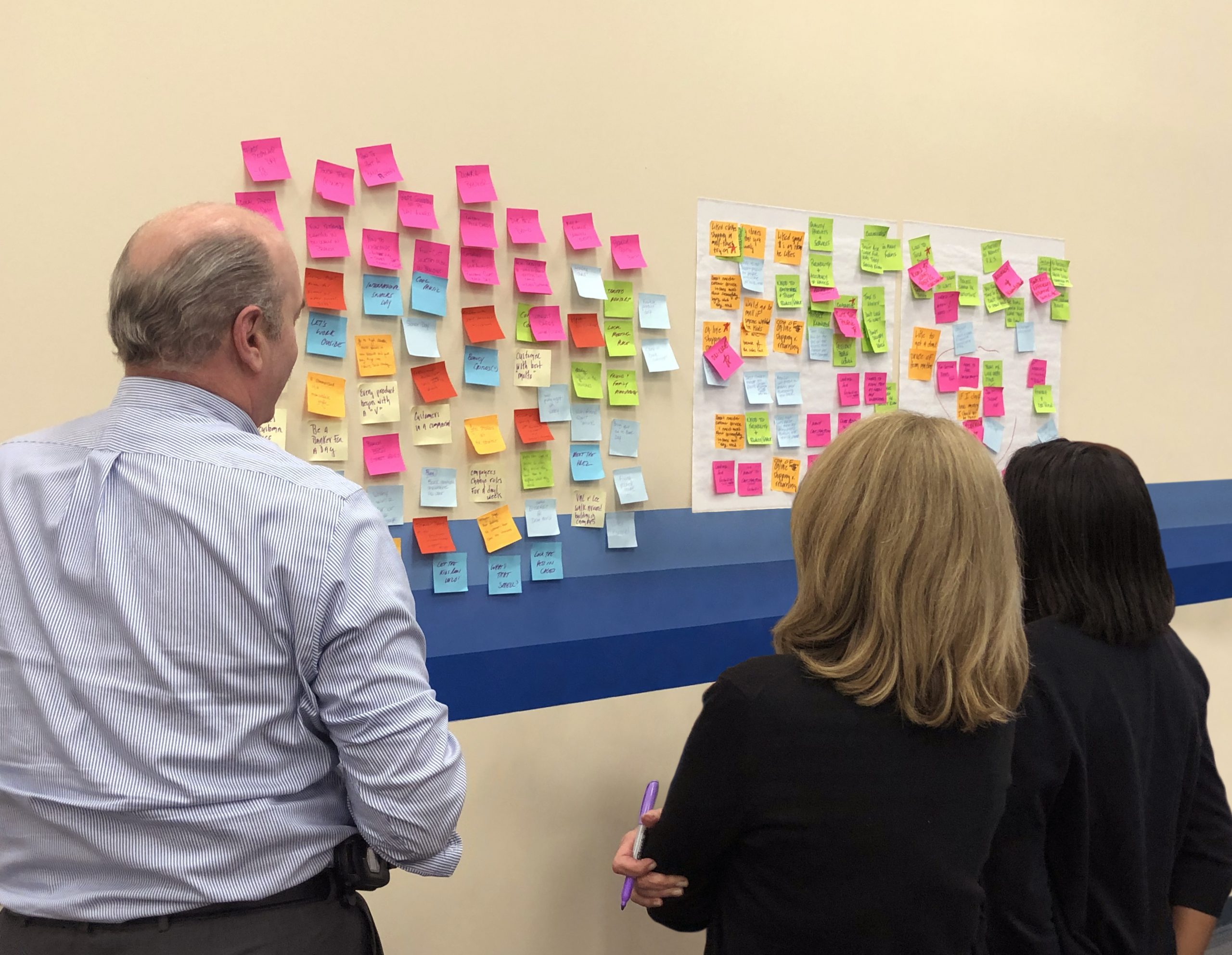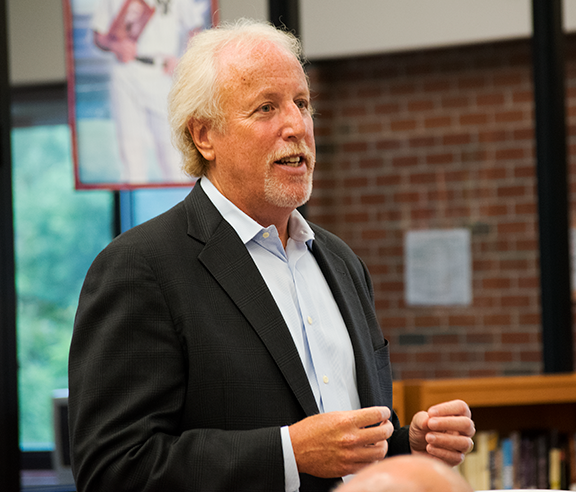Design Thinking Workshops

Our highly-experiential bespoke workshops teach Design Thinking concepts that tackle the real-world challenges that your organization faces. Designed for organizations and individuals hoping to become more human-centered in their approach and innovative in their thinking. Most applicable for business professionals, C-Suite executives, entrepreneurs, and organizational leaders from the public and private sectors.
Over the course of the workshop, you’ll learn the following:
Through collaboration, communication, and reflection, you’ll learn key aspects of the Design Thinking approach and how it’ll benefit your organization.
There are two types of workshops: In-person workshops of one to three days in duration; or virtual workshops of three to five days in duration (more days, but less time each day due to challenges of the virtual environment).
Introduce the participants, goals, and plan for the workshop; review innovative mindset; conduct exercises to get the creative juices flowing.
An introduction and overview to the Design Thinking approach; conduct exercise to demonstrate concepts; introduce the challenge for the workshop.
In-depth session on Empathy phase; participants conduct Empathy activities for challenge outside of classroom; share and synthesize insights; create and share Empathy Map.
Reflect on what we have learned in the day’s session; discuss plans for next day.
In-depth session on Define phase; frame problem; develop POV and problem-statements; share findings.
In-depth session on Ideation phase; brainstorming session related to our mission; synthesis of generated ideas.
In-depth sessions on Prototype and Test phases; review prototypes with potential end-users for feedback; revise and iterate as needed.
Share potential solutions and discuss findings; review and practice presentation and storytelling skills; create and deliver presentations.
Reflect on what we have learned in the workshop: discuss plans for using Design Thinking in your organization and in your jobs; identify potential use cases.
There are two types of workshops: In-person workshops of one to three days in duration, with 30-36 participants (recommended) per workshop; or virtual workshops of three to five days in duration (more days, but less time each day due to challenges of the virtual environment), with 20-30 participants (recommended).
Each workshop is guided by experienced leaders from the Barkley Consulting Group and includes:


We are from a corporate background and have experienced both sides of this type of education. Our experience means we connect with our participants on a natural, human level. Our workshops and services resonate with working people across all industries, sectors, and roles. We ensure that each workshop we deliver is as fun and enlightening as it is inspirational.
Combining thoughtful instructional and immersive, experiential activities, our approach allows participants to practice what they have learned immediately.
People can learn Design Thinking in minutes. How it is applied can be the difference between success and failure.
Our workshops will advance the way you think through Design Thinking and discuss practical ways to implement what you have learned into your work.
“Knowledge is of no value unless you put it into practice”
– Anton Chekhov